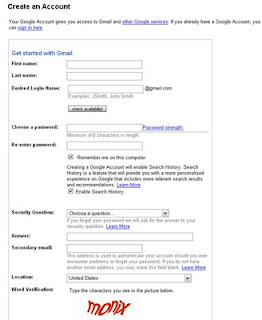 previously limited the number of users. With those restrictions now lifted, Gmail will be open to all comers worldwide for the first time since Google introduced the service on April Fool's Day in 2004. Although it will no longer require invitations to sign up, Gmail is retaining its "beta," or test, status, signalling that Google still considers the service to be a work in progress.
previously limited the number of users. With those restrictions now lifted, Gmail will be open to all comers worldwide for the first time since Google introduced the service on April Fool's Day in 2004. Although it will no longer require invitations to sign up, Gmail is retaining its "beta," or test, status, signalling that Google still considers the service to be a work in progress.Making Gmail more widely available is important to Google because other key products like instant messaging and calendar management are tied into the e-mail service. Google tries to make money off its e-mail service by electronically scanning the content of the communications so it can display advertising links tied to the topics being discussed.
Gmail's advertising methods have raised some privacy concerns and turned off some potential users who don't like the idea of their e-mail discussions being perused or commercialized.